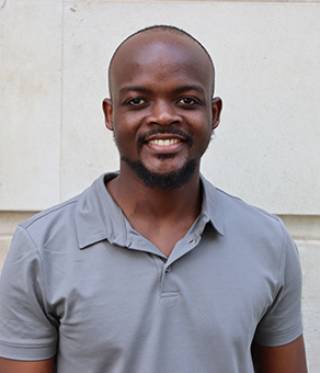Research Title
The Politics of Water Provision in Lilongwe: Actors, Ambitions, Expectations
- More About Wilfred
Education
- 2022 - Ongoing: UCL - PhD Human Geography, UCL
- 2019 - 2022: University of Cape Town - MPhil Urban Studies. Dissertation: When the Power is Out: Strategizing for Electricity Disruptions in Lilongwe
- 2012 - 2017: University of Malawi, Polytechnic Campus - BSc Urban Planning. Dissertation: Dissertation: Residential Property Disposition Among the Urban Poor Beneficiaries of a Housing Priject in Angelo Goveya, Blantyre City, Malawi.
Honours and Awards
- Malawi Government University Scholarship – University of Malawi (2012 – 2017)
- Polytechnic Association of Physical Planning Students Prize for distinguished academic performance (2013, 2014, 2016)
- Andrew Mellon Foundation Scholarship – University of Cape Town
- UCL Geography Department PhD studentship – University College London (2022 – 2025)
- Teaching
I have been involved with the following teaching and mentorship:
- Adjunct Lecturer (Introduction to Physical Planning; Ubanization and Informal Settlements) – Lilongwe University of Agriculture and Natural Resources, NRC Campus
- Teaching Assistant (Human Ecology) – UCL Department of Geography
- Teaching Assistant (Global Urbanism) – UCL Department of Geography
- Course Tutor (Geography Theories) – University of Cape Town
- Research Interests
Failure to provide safe water is a problem affecting many cities across the world, including Lilongwe, Malawi, where the water sector is characterised by inequalities in access, quality, reliability, and affordability. This study takes this failure as an entry point into broader questions of how institutions governing water in Lilongwe shape the water sector and chooses projects to invest in.
The water sector in Lilongwe involves a wide variety of actors, including transnational donor agencies, national, and local actors with varying ambitions and interests. Among the actors are; the Lilongwe Water Board, a self-sustaining statutory corporation which collaborates with national and local governments and whose decision-making is influenced by ideas of modernity; traditional donor partners such as the World Bank, who have a long history of shaping development policy; and local Non-Governmental
Organisations play a crucial role in representing the community’s rights and needs. Currently, the Malawi government, through the Lilongwe Water Board is implementing a Lilongwe Water Project whose aim is to improve water services in the city. The project has brought together community, national and transnational actors who are working together to implement the project.
This plethora of actors with varying ambitions raises important questions about how the ideas and power relations among the actors shape the outcomes of water supply projects. This study, therefore, investigates how actors working together choose objects of investment, forms of governance and financing and thereby shape the outcomes of water projects in Lilongwe.
Data will be collected through in-depth expert interviews and key policy document analysis, as well as in situ engagements with selected community-based organisations, to understand how actors collaborate and formulate responses to Lilongwe’s water provision challenges. This study will contribute to urban development literature by identifying links between water governance and urban development, and to literature on the state by exploring the emergence and configurations of statehood in Lilongwe.
 Close
Close


